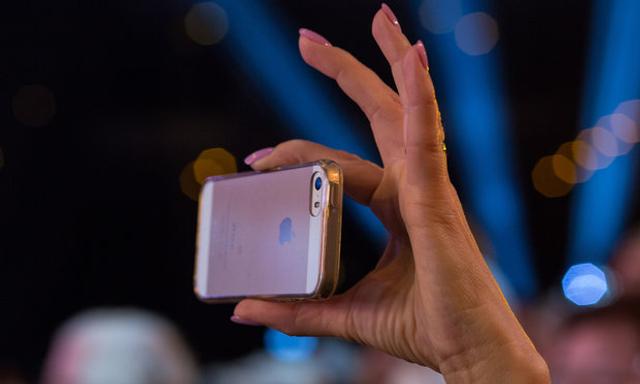Yesterday, we reported on an interview by Adam Aron, the head of US cinema chain AMC and his willingness to trial phone-friendly cinemas.
Needless to say, the whole idea was pretty roundly rejected by anyone with a working brain stem and drew a huge number of comments online about the controversial idea. It's gone one step further, with the head of another theater chain - Drafthouse Cinemas - wading into the debate.
For those that don't know, the Drafthouse is known in movie circles for its zero-tolerance policy on mobile phone usage in their cinemas and have even put out public-service announcements with famous actors telling people to turn off their phones.
What do we mean? Take a look at this.
So, sure enough, the Alamo Drafthouse's head honcho, Tim League, responded with an open letter to Adam Aron's comments about phone-friendly screenings.
Here it is in full and unedited.
First off, I'd like to say that I am very excited for Adam Aron to be taking the helm at AMC. I am a fan of the Starwood Hotel and Resort brand and the customer experience that his former company consistently delivers. Bringing that leadership focus to our industry will undoubtedly yield positive results and drive healthy, innovative competition.
That said, I disagree with his statements on texting in a movie theater. Innovation in this direction could seriously hurt our industry.
My first objection stems from cinema's relationship with directors and producers, the content creators. Auteurs focus for years to complete their films. We as exhibitors rely completely on these creators for our content and have an unwritten obligation to present their films in the best possible way: on a big screen with big sound and a bright picture in a silent, dark room. You can only be immersed in a story if you are focused on it. If while watching a film you are intermittently checking your email, posting on social media, chatting with friends, etc., there is no way you are fully engaged in the story on screen. I find that to be disrespectful to the creators, those who make the very existence of cinema possible.
My second objection stems from the generalization of millennial behavior.
"When you tell a 22-year-old to turn off the phone, don't ruin the movie, they hear please cut off your left arm above the elbow. You can't tell a 22-year-old to turn off their cellphone. That's not how they live their life." - Adam Aron, quoted in Variety.
22-year-olds aren't alone; heavy cell phone use is far more widespread. Today, 68% of U.S. adults have a smartphone, a staggering increase from 35% just five years ago.
I spend a great deal of my life on my phone, too. I check news, social media and email obsessively. If there is the slightest of lulls in my day, a 20 second pause in an elevator, for example, I impulsively break out my phone and check something. I always carry an external battery because I can't make it through the day on the standard power. I am not alone. According to some reports, the average American checks their phone over 100 times a day.
This isn't just a millennial behavior, it is a global attention span epidemic.
Regardless of your age, turning off your phone and focusing on a good movie is much-needed therapy. This time of focus in a darkened room is core to the experience of cinema. Only with this focus can you lose yourself completely in the story and really fall into the magic spell of the movies.
Plenty has already been written about glowing screens and unchecked chatter driving people from the cinema experience, so I won't belabor that point further. And I'm fine with "second screen" experimentation with regards to alternative content, gaming, interactive screenings, etc.
But when it comes to our core business, creating a special environment for our customers to experience new stories for the first time, there is absolutely no place for the distraction of a lit phone screen.
At the Alamo Drafthouse we are actively engaged in trying to make sure cinema remains a compelling destination for young people, and I agree this should be a focus for the whole industry. I just don't believe that this line of experimentation is the right tactic. A firm policy against talking and texting in the cinema is about respect: for the filmmakers and fellow cinephiles of all ages.
Outside of this issue, however, I look forward to being challenged and inspired by what innovations and enhancements Adam Aron brings to the cinema experience.
Via BirthMoviesDeath









































































